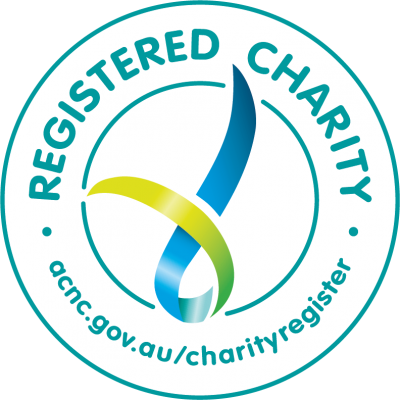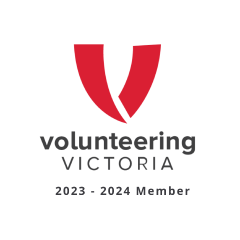Recovering together…
RESIDENTIAL
We recognise that to live well, free from addiction, that this is not just simply a matter of assisting you on a pathway to recover and integrate into community but that this comes with the understanding that it will require change in a number of aspects of an individual’s life.
Impact Recovery Residential Rehabilitation programs are structured live-in programs for individuals struggling with alcohol and/or related issues, and their associated mental health issues.
Our residential treatment programs offer a person-centred approach, focusing on overall lifestyle changes, not simply abstinence from alcohol or drug use.
Our residential treatment programs utilise the Therapeutic Community Model of Treatment.
This treatment model is based on a self-help approach and the evidence that the community is the primary influencer for promoting positive personal growth. Participants actively engage in the program and provide support to fellow participants within a therapeutic community environment.
Our program caters to men and women aged 18 years or over. Our focus is on providing a strengths based approach with therapeutic interventions and positive peer support to teach and encourage self-responsibility and guide you towards optimal health and wellbeing. You can tailor your treatment experience to meet your individual needs and goals.
From here, our staff will work closely with each individual to form specific strategies, such as modifications of treatment and action plans.
Rehabilitation Programs
Chain Breaker Program
A 12 week program designed to meet the needs of those who require short-term residential treatment and respond best in a shorter, more intensive program. This program provides an opportunity for people in addiction to live together and take responsibility for themselves and each other as a community.
Living Well Residential Program
This is a 12+ month residential program. While participants can leave at any point, it is recommended they stay for at least 9 months, as research has proven that their chances of remaining abstinent are higher, the longer they stay in the program.
Residential Rehabilitation Costs
Our programs are affordable if you receive a Centrelink benefit and have a current Medicare card.
If this is not the case, please call us to discuss options on 0400 295 238.
Program Elements
- Treatment plans based on individual needs
- Multidisciplinary care and case management
- Therapeutic groups
- Facilitated links to community self-help groups
- Creative expression programs
- 1:1 counselling
- Education groups on drug education, a positive lifestyle, spiritual awareness, gambling, family/relationships, trauma, finances, preparing for work, education and volunteer engagement
- Weekly Group Therapy and practical teaching on issues such as; conflict resolution, anger management, communication skills, identity and self-worth, life skills, vocational counselling, assertiveness training and boundary setting.
- Work Therapy activities designed to build on skills and increase self esteem and confidence in learning and applying these new skills
- Pre-Employment Training & Assistance: Preparing to work, Work Experience, Management and people skills, stress management and time management.
- Medical/Mental Health/Domestic Violence services provided by partnered professional health services and community supports
- Fitness programs and Sport/Other Recreation opportunities conducted by accredited providers and partner supports
- Opportunities for participants to provide feedback about all elements of the service
Program Steps
Each program step you personally take enhances the capacity for change and living a life free from addiction. Each of our steps is a major celebration and we will encourage you every step of the way!
Induction
The initial period is called ‘Induction’. This is the time that allows treatment goals and support plans to be assessed and put in place with a Case Manager.
We personally work with you to establish your Freedom Plan making sure we have captured all the information that is needed to support you well and set you up for the best chance of recovery. Some barriers that may be addressed are language and literacy, legal and financial issues.
Step 2 – “Healing”
Focused on learning about consequential thinking and learning to control cravings, thought patterns, and ways of relating to others, with a view to restoring healthy relationships with the people you love. Addressing core issues including past trauma, grief, loss and shame.
Step 4 – “Community”
Continue with your pathway plan to achieve your goals, attending certain groups within the program, actively participating in continued accountability with staff.
Bridging Services – Continuing Your Care!
After completing the residential program, individuals can access a wide range of additional supports. Aftercare focuses on relapse prevention and is designed to be there for as long as it’s needed.
- Individual and family counselling
- Post-program supports
- Workplace support
- Self-help groups
- Mentoring
- Transition sober living housing
- Ongoing case and care management
- Assistance and connection to community supports in your region
- Referral on to other AOD and/or allied health, parenting and children’s services
Lives changed!
COMMUNITY
We believe that it takes an entire community to bring about solutions to the problems of homelessness, alcohol and other drug use, mental health and domestic violence.
It is with this spirit of collaborative unity that we work alongside and with other health, education and training, professional and community services to achieve this aim.
Justice Services
We work alongside legal representatives to provide clients the best opportunity for a favourable outcome:
- We have a good reputation with the courts, with sound practises and policies regarding reporting and undertakings made to the court
- We facilitate the fulfilment of court orders, enabling legal representatives to secure the best possible bail conditions as an alternative to incarceration
We can meet necessary reporting and documentation requirements:
- Provision of comprehensive court reports
- Treatment reports, as required
- Letters of attendance
- Supported court appearances
What you can expect from our specialised team:
- Specialised forensic client case management, which includes an Individualised Care Plan, focused on recovery, healing, pathways to participation and community. The goal is to assist clients to function well in community, with appropriate supports, breaking a cycle of addiction/reoffending
- Attending Court with clients/families as requested
- Case management supports to work alongside other professional organisations in a referral approach to other local support agencies for your wellbeing
- Case management supports to work alongside professional mental health service providers where dual diagnosis relates to forensic clients
- Assistance with medical/legal appointments
- Support for your families/children
- Referral for housing, employment, financial counselling, emotional counselling where applicable
- Liaison with Solicitors, Barristers, and any relevant service providers in regards to our intake and admission procedures [forensic and other clients with police records]
- Information and support for families entering the legal system for the first time
- Liaison point for AOD services whose clients are also part of the legal system
- Providing letters to the Court around participation in Impact Recovery programs as required
Professional Counselling
Counselling involves talking in a safe and supportive space about any difficulties or challenges you are experiencing.
It can help you find positive ways to manage your situation.
What is counselling?
Counselling provides a supportive and collaborative environment where you can discuss your problems and concerns, working on what you identify as most important.
Participating in counselling can help you clarify your situation, gain new perspectives and work towards change. The counselling process can support you to develop insights, generate solutions and consider choices.
How much will it cost?
If you work for a medium to large employer, your workplace may offer an Employee Assistance Program (EAP). These programs cover the cost of various services that may help you find the support you need.
Our providers will apply fees that are appropriate for the service delivered, your financial capacity to pay, or your EAP coverage. When you contact us to enquire about counselling, we can discuss the best pathway of care for you.
Whatever your concern, it’s important to reach out for support.
We work with individuals, couples and families in a non-judgemental way. We listen and engage trusted professional counselling services that we, as an organisation, know have successfully helped many people through their most difficult challenges.

